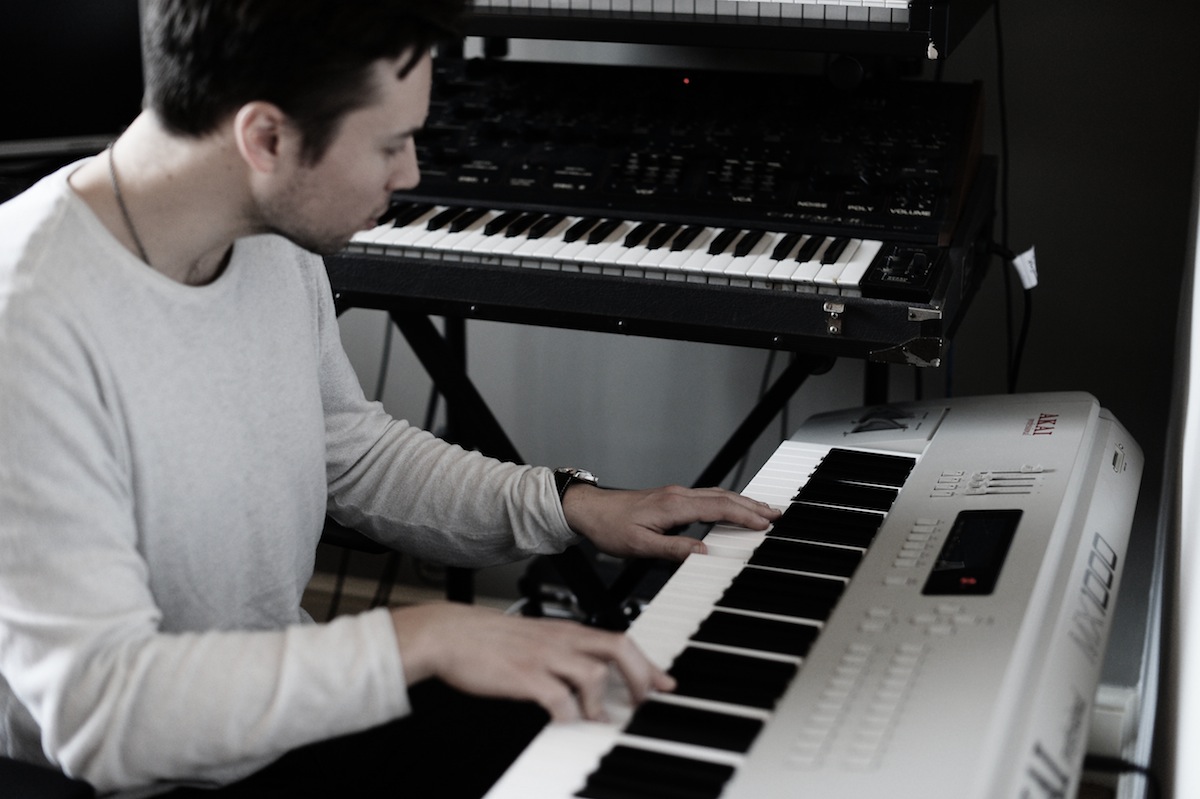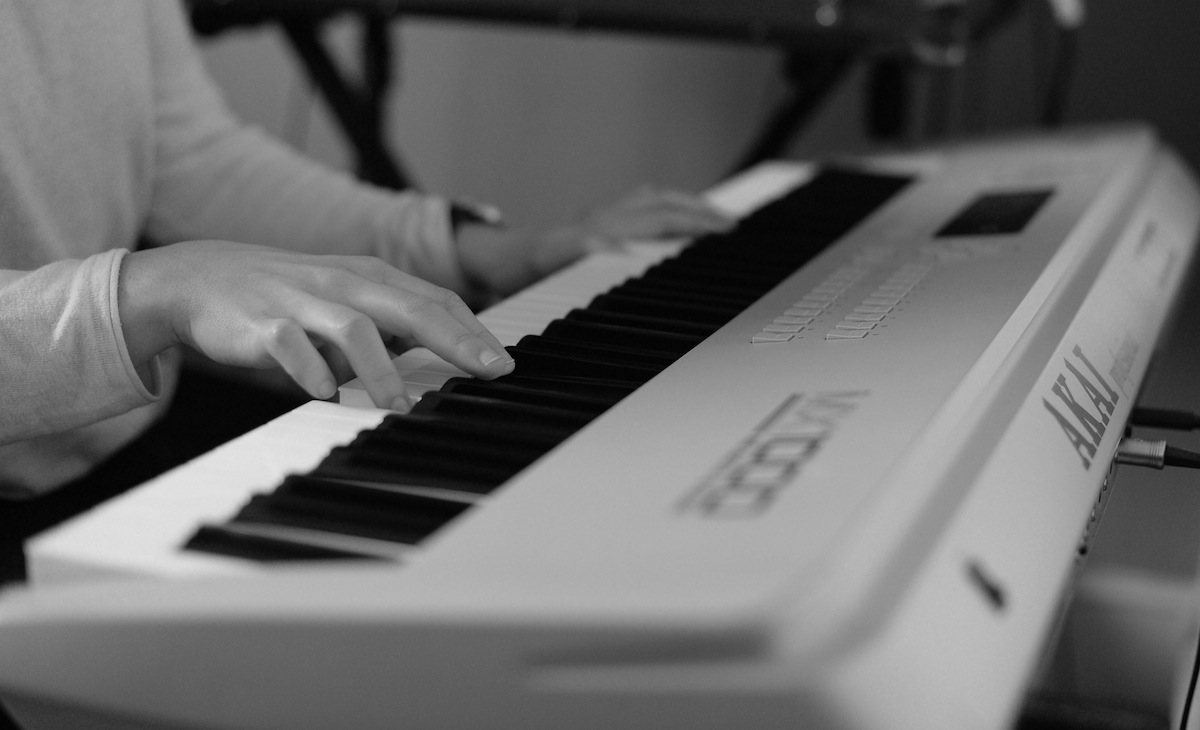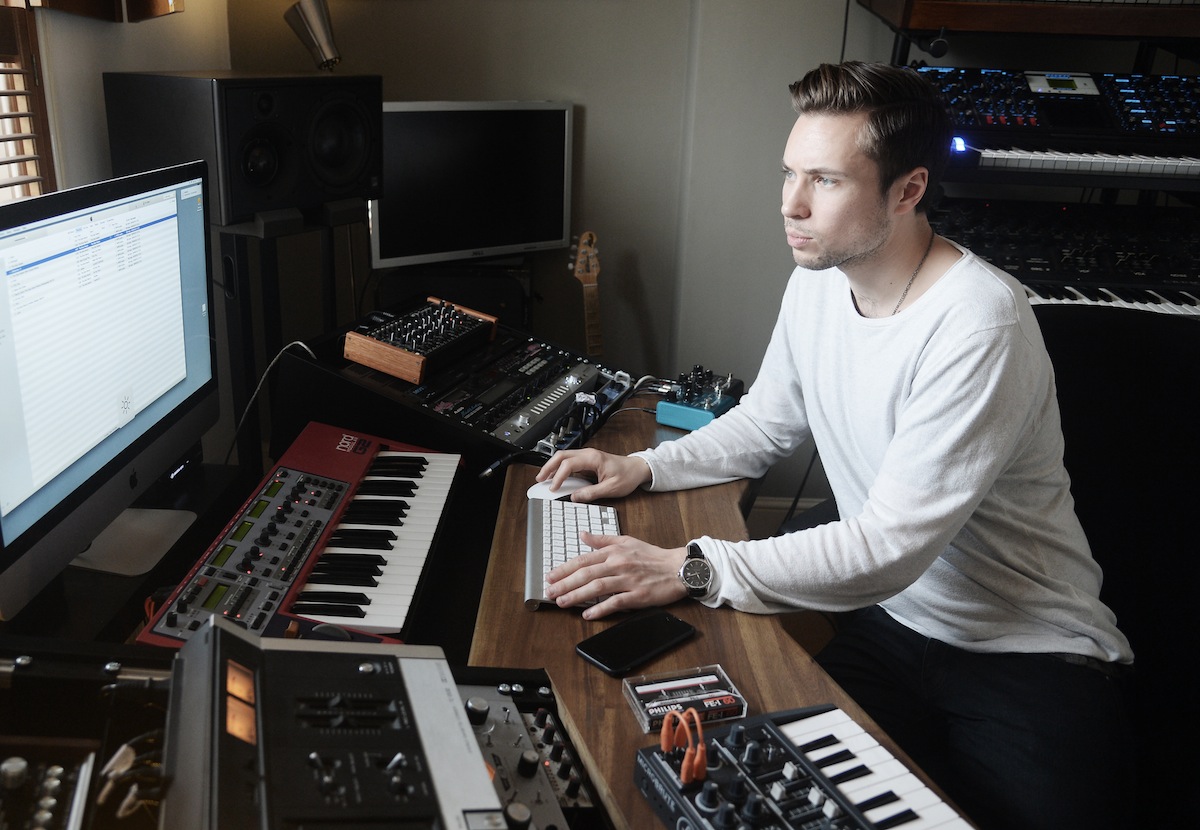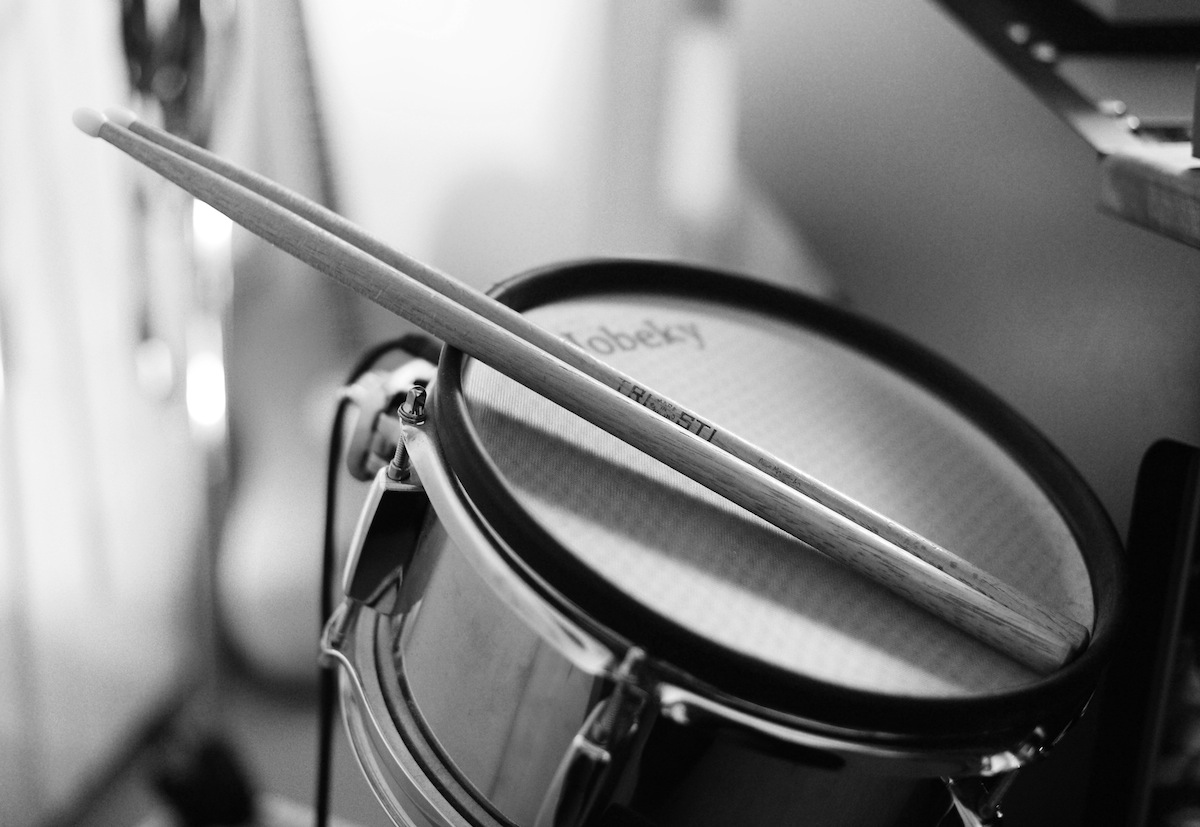In the Studio: Tim Green
Take a peek into the London laboratory of the ever-upwards techno/house honcho.
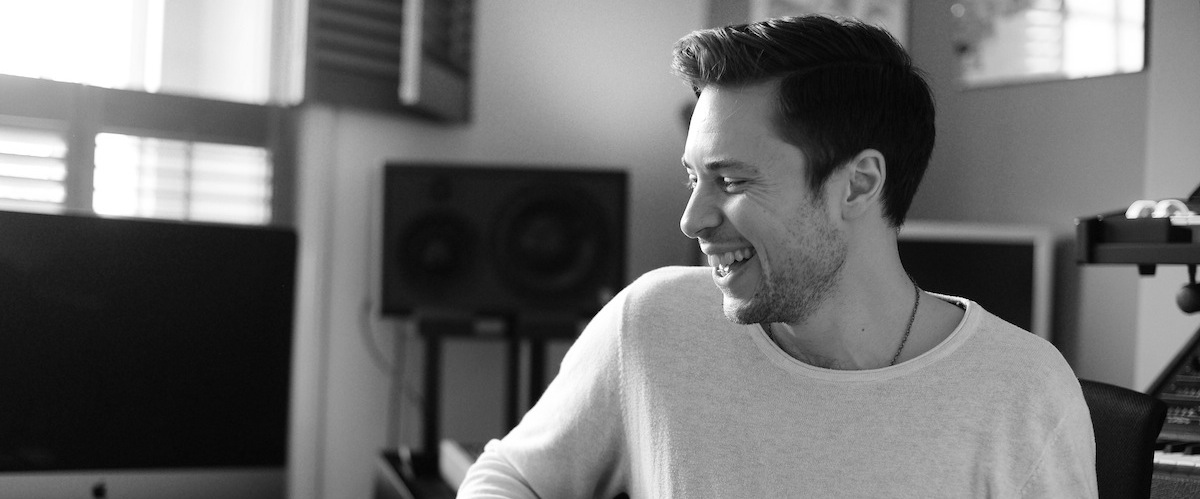
In the Studio: Tim Green
Take a peek into the London laboratory of the ever-upwards techno/house honcho.

London’s Tim Green occupies a curious position as a certain kind of British producer. Nowadays, the 31-year-old, originally from Aldington in Kent, makes beats of a club-crushing propensity more often associated with tracks emanating from continental Europe. He creates the kind of immense cuts that demolish events like Cocoon at Amnesia in Ibiza, or festivals such as Time Warp in Mannheim, Germany. His tunes pulse with dark energy, that occupy that sweet spot between house and techno, and are the go-to artillery of many elite DJ’s arsenal.
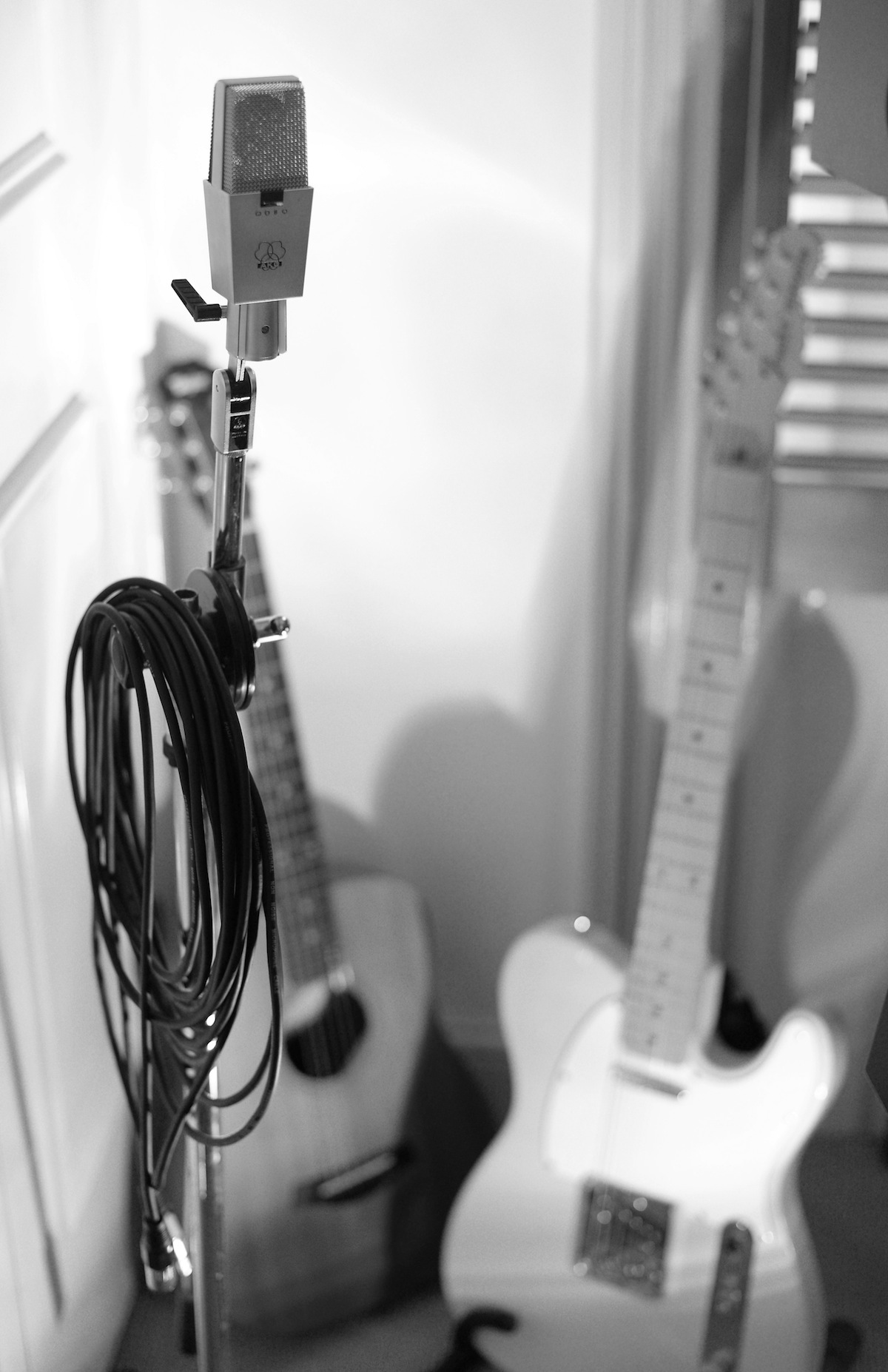
While he makes primarily club-geared material, it’s diverse, intricately produced and indicative of a musician spurred onward by a desire to push his creative boundaries. Green’s released on Get Physical, Crosstown Rebels offshoot Rebellion, My Favorite Robot, Dirtybird and regular home Cocoon, which gives some clue as to how wide he casts his musical net. It’s a rare pleasure to be invited to his studio in Camden one fall morning to see the tools of his trade and find out how he puts his beats together.
On something of a roll right now on the back of big club hit “Eclipse” for Cocoon (a restrained, metallic, quietly anthemic tech-house monster if ever we heard one), a new Body Language compilation for Get Physical is due in the new year, and there’s a forthcoming band project that’s under wraps for now.
He’s a busy man—but on greeting us, he’s also a convivial host, taking us up to his pristine apartment where the studio resides and offering us coffee. The studio room itself is geared purely towards creative endeavors. There area few guitars in the corner, a MIDI drum kit, a central studio console where his iMac and monitors are set up, hardware compressors and more outboard effects units, and several racks containing some tasty-looking analog kit. We perch on the side, ready to fire some questions his way.
When did you set up this studio?
I was in Paris before. I’ve been here now for a year-and-a-half. As you can tell, it’s where I live as well. I don’t like to have a separate studio from where I live. I like to be able to come here whenever I want. It’s more relaxing for me. If it’s not working I can go and relax in the house.
What’s your favorite time to work on music?
After lunch is my favorite time. I go swimming quite a lot, I’ll probably go swimming just before lunch, come back, have lunch, and then I seem to work. That seems to be the best time for me, although it depends what state I’m in. If I’m hungover from the weekend, it’s a different story.
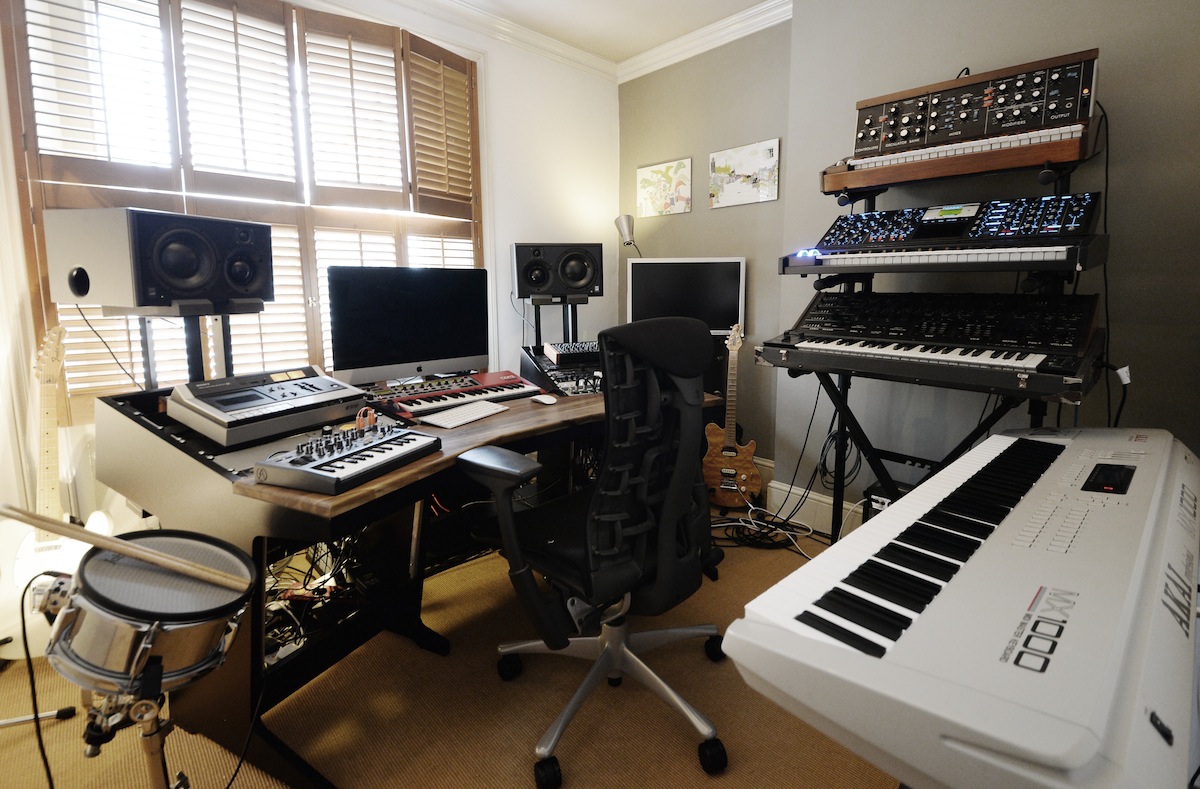
Do you find exercise stimulates your creative impulse?
Yes, 100 percent. Exercise gives you energy, and it’s a nice walk for me through the park [Regent’s Park is nearby] It’s about a 15-minute walk there and back, and I love listening to music while walking, getting lost. It’s a good time to listen to something I’m working on, or listen to something to inspire me as well. It works really well for me anyway.
I can see a fair bit of hardware here. How much do you split your production between software and hardware?
On a song basis, it could depend. It’s literally half and half. There are some songs where it’s fully analog, some songs where it’s fully software, digital. I find more and more if I’m using digital plug-in sounds it’s best to do the rest of the song using digital. If you try to cross it sometimes they don’t complement each other as well. So I find that if I’m going to start using analog stuff, the song is going to end up all analog. Not all the time, but I find that more. To be creative, the hardest part is getting your ideas out, using the equipment you’ve got, so you want it to be the quickest, pain-free way, before you screw the idea up somehow.
What software do you use?
For the sequencer, Logic. I have Ableton as well; I was using it for a couple of years, never strictly. I was using it for rewires—where programs are talking to each other, and you can hit play and they’ll play at the same time. I was using both, but I’ve gone back to using Logic solely now. I’m much more comfortable with it. It sounds better; everything about it is better for me. I don’t know if I’m biased. I have no problem with Ableton, people say it’s so much quicker, but I can do things quicker in Logic for the obvious reason that I know how to use it more. I love it.
Can software sound as good as analog hardware?
I grew up with analog equipment, tape machines, reel-to-reel; electronic stuff came much later for me. I was playing guitar in bands and things. The sound for me is better because it’s what I’m used to, what I’m drawn towards quite naturally. This Minimoog—it’s an original one, I think from the late ’70s… this is one I got off my dad. He’s a keyboard player. Thankfully he never sells any pieces of equipment, so he’s got so many old things that I’ve been able to buy off him or inherit. At the same time, I use plug-ins all the time. Neither sound better or worse it’s just down to personal preference I think.
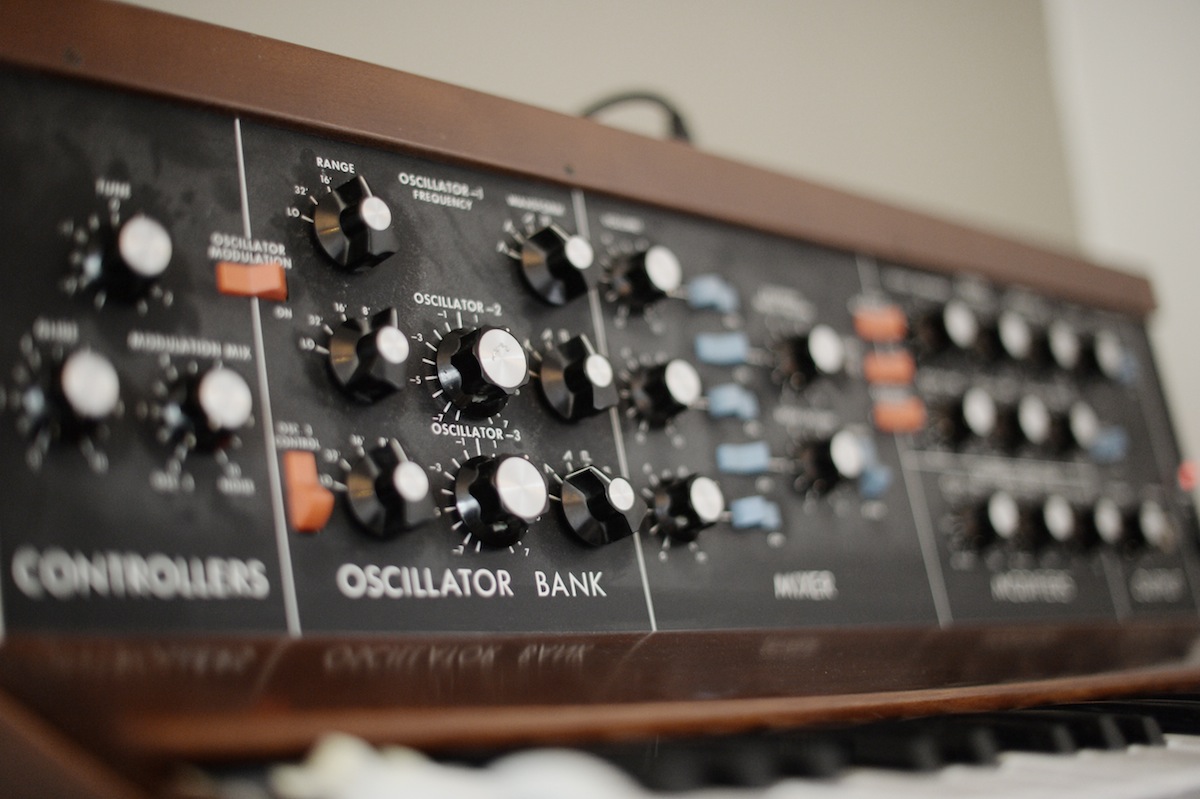
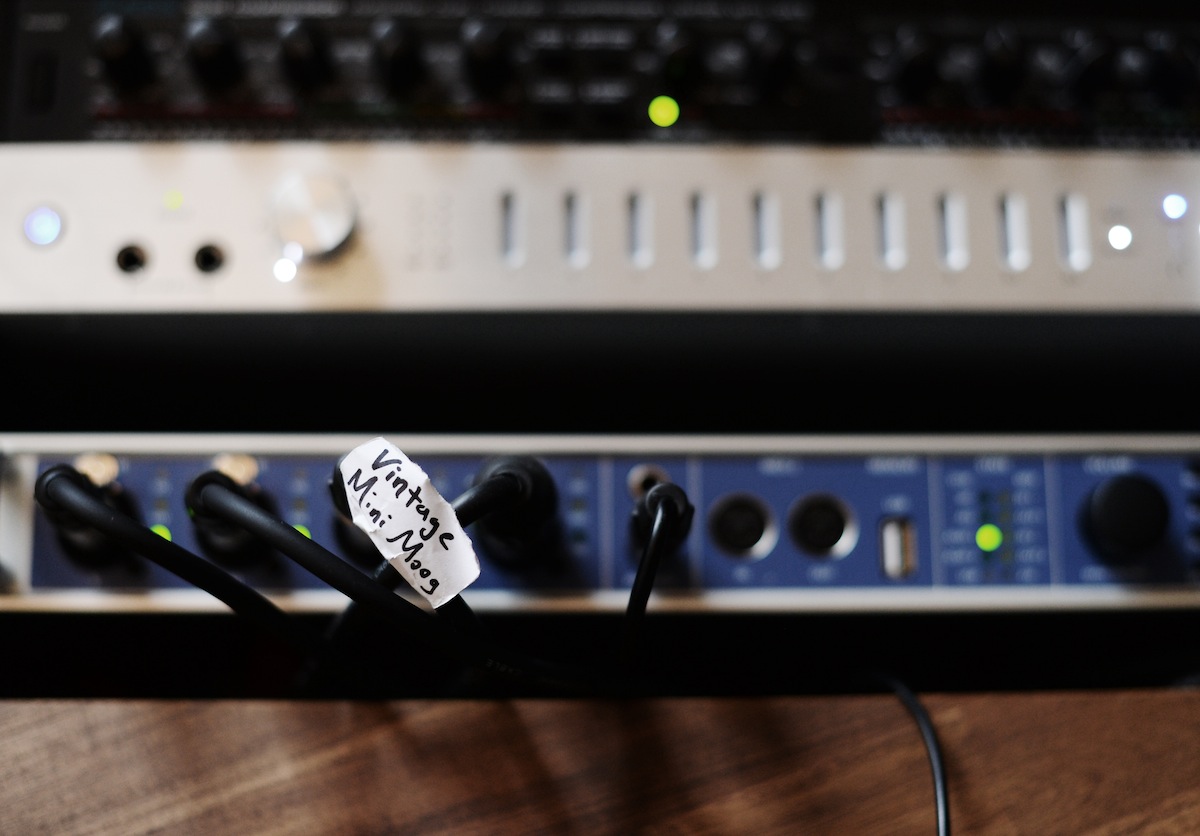
What do you think are some good VSTs?
There’s one called Ace by u-he. I speak to a lot of people and everyone uses them [plug-ins by u-he, like soft synth Diva href=”https://www.u-he.com/cms/diva”], and people keep on saying, “This one’s really good” or “That one’s really good”. I’ve only used this one but I love it, it sounds really nice. Going back to the analog-versus-digital thing, I record a lot of my stuff out onto tape or record it out through a compressor—or even record it out through the Moog—and bring it back in. You can turn a quite digital signal into something that sounds a little closer to analog. Depending on what you want to do with the signal, you can really distort it or you can keep it simple. But it gives more life and presence than something very digital, strictly from a computer.
What bits of outboard gear have you got?
This is a Moog Voyager. This is great. They’re quite similar but I still think this sounds better [motions to the Minimoog]. The Voyager is so much more versatile; it’s MIDI as well, which is really handy when you program. I’m not so much a programmer when it comes to modular synths and things, having a loop constantly going and spending ages tweaking it. I like the keyboard and I like to play the sounds. You have to play it and you have to get the take right, there’s no editing afterwards because it’s completely analog. It doesn’t bother me. But the Voyager is better in situations where you can come back to a patch, save all the patches.
This Crumar DS2 is really old-school—an Italian synth that I picked up on eBay recently. I love the sound. A German guy was using this in a band that I got into recently, and I had to find out what it was. It’s dirty, unpredictable…it’s really good. It’s polyphonic, meaning you can play chords. I love it, it almost doesn’t work and that’s why I like it. A lot of character.
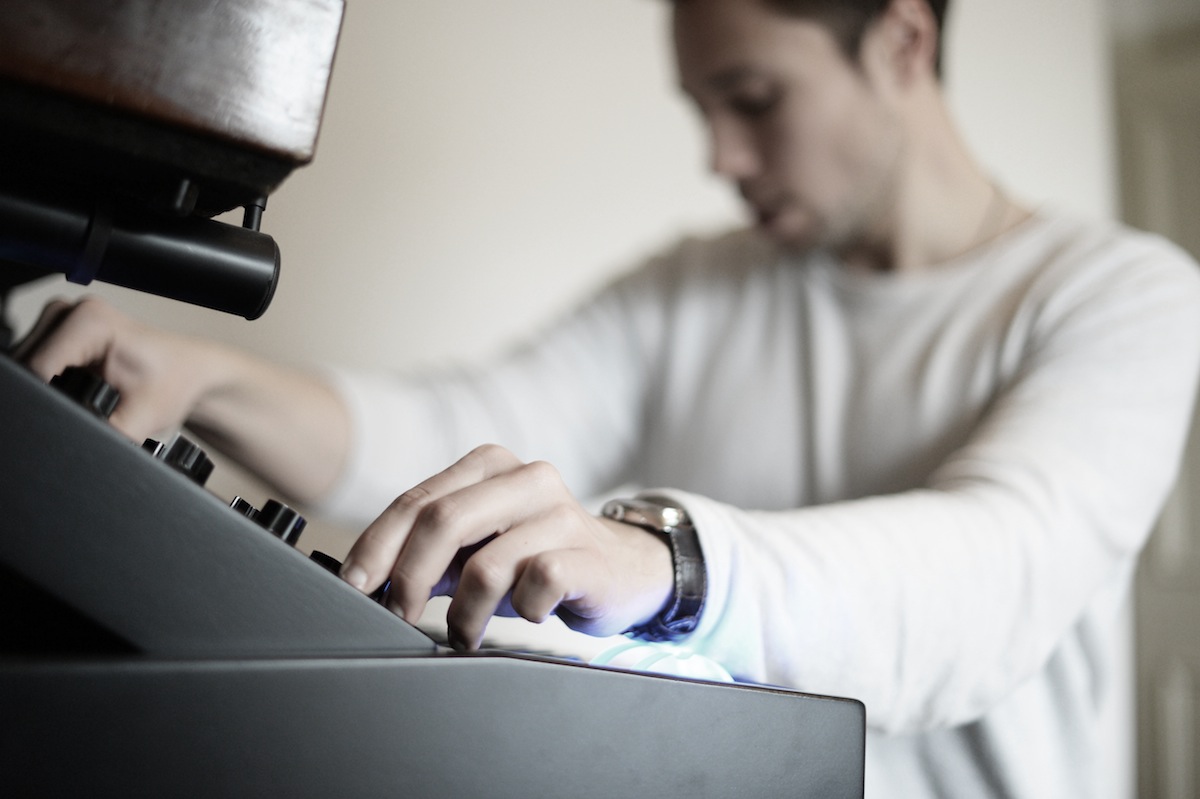
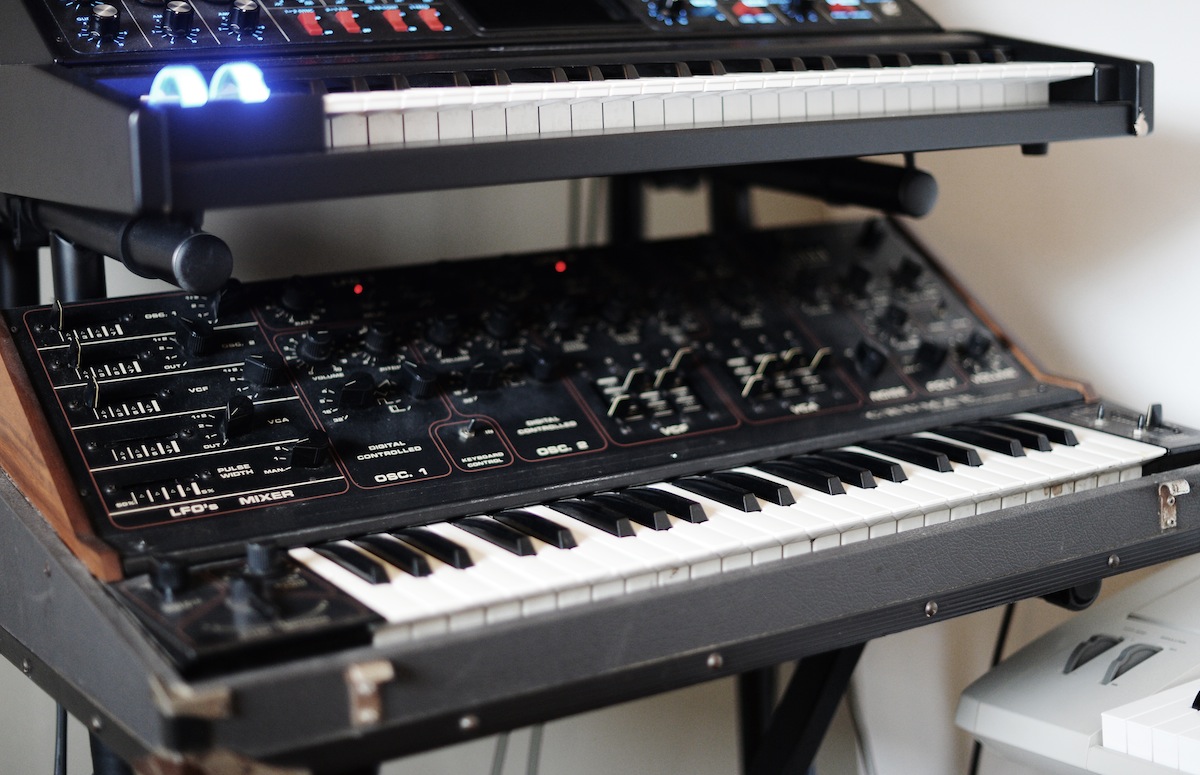
I see there’s an Arturia MicroBrute, is that mostly for basslines?
I use it mostly for lead sounds. It is really good for bass—it’s really broad-sounding, and cuts through really nicely. For an analog synth, the size of it, it’s almost a joke. It sounds incredible…a really nice sound. It’s cheap as well. I love this sort of thing, you can buy a plug-in for the same amount. I hope that producers look at that and are like, “I could get that”. You don’t have to spend three grand.
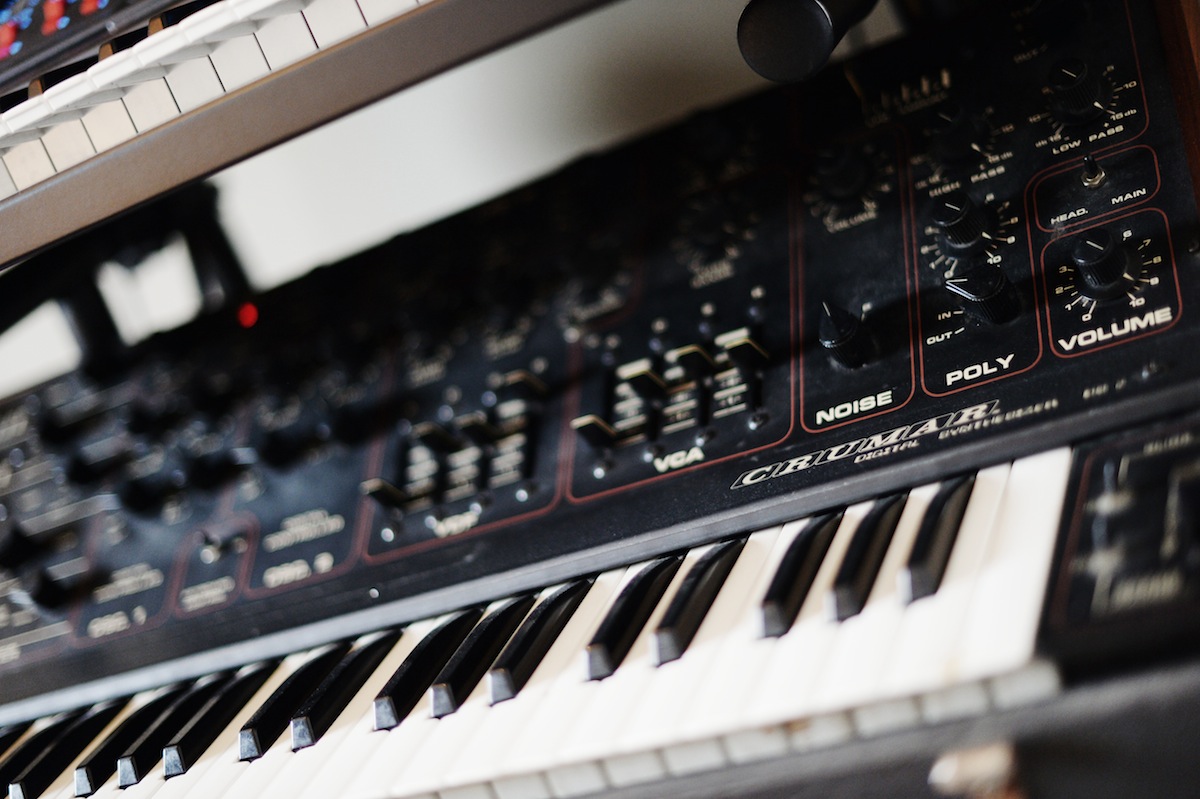
And there’s an old tape deck.…
This is a very simple tape deck, it’s really good fun when you’re recording stuff to tape. On certain sounds, I like to really overdrive the signal because you get tape saturation. It’s only on little cassettes so it’s a cheap sound, but it can give you more of a lo-fi sound that I really love.
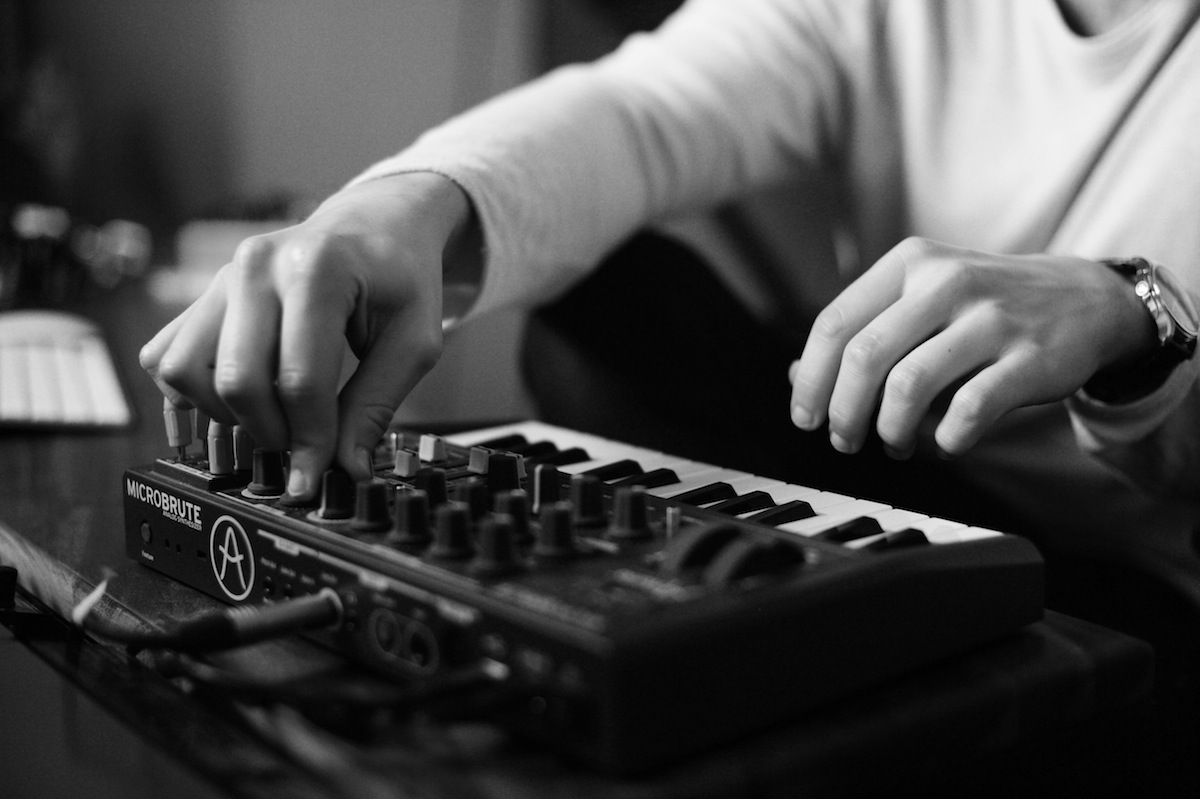
How about hardware compressors?
There’s a DBX compressor. Very light compression, quite transparent. It works on certain things and certain things it doesn’t. It’s very simple. Sometimes putting basslines through it works so well, and I don’t know why! I got that cheap on eBay. And there’s a very cheap analog Alesis compressor. This is the one Daft Punk made famous on their first album. I think you have to spend 120 pounds now, but I got this brand-new for about 40 pounds.
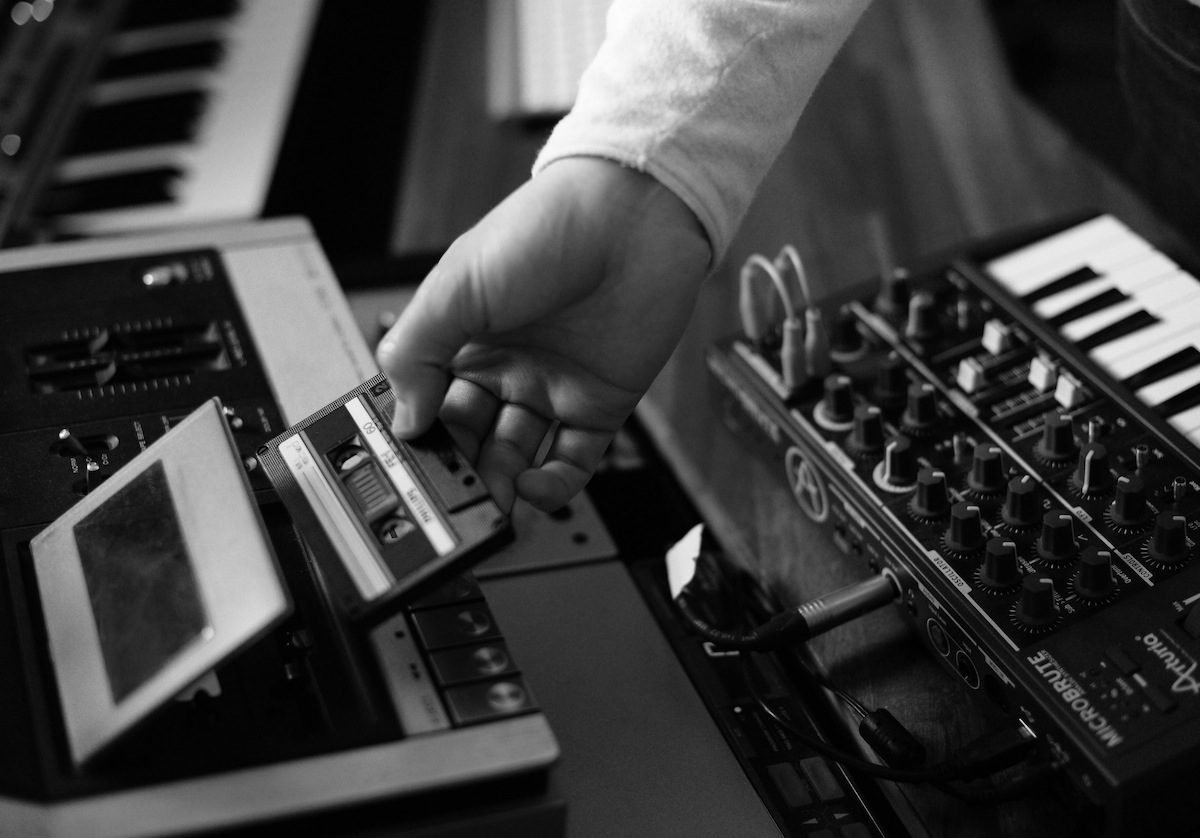
When it comes to the mix-down process, how do you go about it?
It’s different every time. I mix as I go along, I know how I like to have each sound sounding. It depends on the track. If the track sounds good I won’t mess with it much more. I’m not the sort of person to jam. A lot of artists in electronic music, they’ll do live jams and that’s the track, I’m not that kind of person. I’ll sit down with a guitar, write the melody down and come up with some chords—a bit more structured. Because of that, I’m very conscious of the sort of sound that I want and affecting it. If I like the way it sounds, if I want to change it into a different sound I’ll probably do it then. The mix-down process is very little for me; it’s more just making sure I’m happy with the mix It’s probably already mostly there.
Are you a trained musician?
I played guitar since I was seven or eight. I studied that, having lessons until I was 16—quite a long time. I’m completely musical, but I can’t say I have classical training. I have a really good knowledge of music theory.
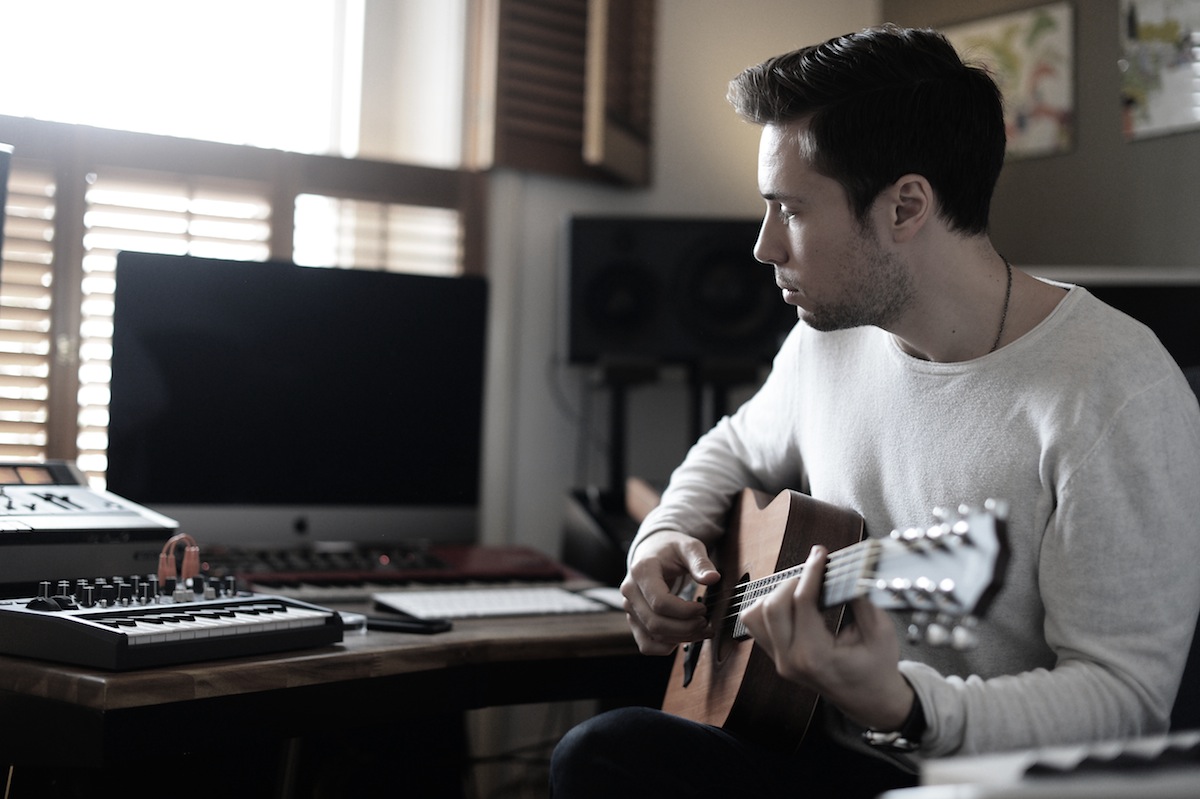
What steered you onto the hedonistic path of dance music?
The first thing was complete boredom of guitars…guitar music and live music. I’d exhausted any need for listening to or playing that music. I needed to hear something else. I’d just gone to college and was in this state of mind, and the college course was a music-production course. It was very much based around sequencers and electronic music and stuff. I met my now best friend Tom, who started playing me all manner of electronic music±and Daft Punk was the first one. I remember I heard the “One More Time” track on the radio—and then I saw him later that day, probably the second time I met him, and he started playing me this music. I was a changed man. It was sampling records I knew the originals of—I was hearing them in this new light, which never seemed possible before in my mind. It was a really good bridge.
“I don’t think it should be a problem for an artist to do a deep-house record and a minimal record and a techno record and whatever they want”
What do you think of dance music at the moment, the way it’s produced? What are the positives and negatives?
Dance music is a loose term, and so many things could fall under that. Whether you want to differentiate between underground or EDM or something, that’s your choice. At least in the scene I’m trying to associate myself with, the underground scene, it’s better than ever at the moment. I feel like a lot of trends in the last five or six years have come and gone, but they’re starting to coexist together quite nicely. We’ve just had the deep-house thing, is it still going? That was the last thing; minimal was big for quite a long time and dipped back as well. But people don’t seem to have such a strong opinion, like “minimal’s done”. There’s still divisions, but there’s less problems. I don’t think it should a problem for an artist to do a deep-house record and a minimal record and a techno record and whatever they want. I think people should be allowed to do whatever they feel and not have to be associated or fit into a bracket, which is easier for people to digest. That’s why people want to genre-define everything, so they can say, “I know what that music is, I know what that person does”. I think it’s much more interesting when you can say, “Wow I never thought that person would do that…I don’t know what this is, I can’t bracket it, great.’ It’s slowly getting better and better, I feel like maybe there won’t be another trend. I’m probably gonna eat my words!
All photos: Beth Crockatt, bethcrockatt.com.
